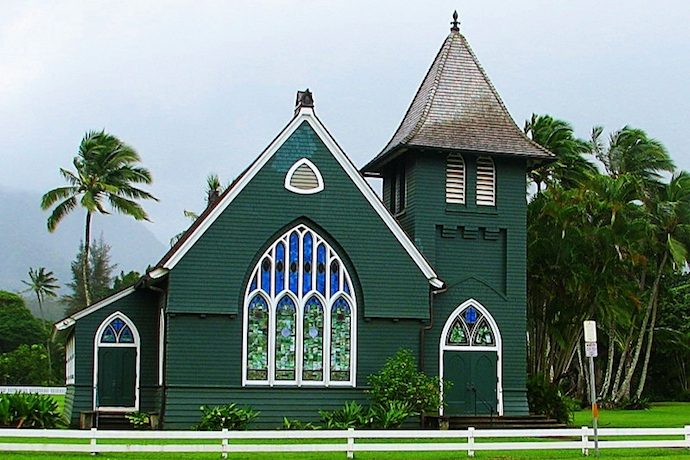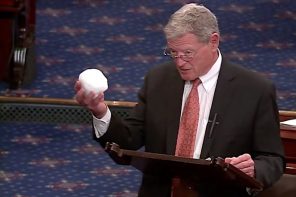One of the most vexing questions to confront Christians in this post-Christendom age is how to effect change when their social views are no longer considered normative, or even relevant. For the better part of 50+ years, the Christian right has been caught up trying to hold back the tide of the Sexual Revolution, sometimes with disastrous results, such as Roy Moore’s defeat in Alabama. They’ve done better with blessing the wealthy and Republican politicians as Christian exemplars, sometimes with disastrous results, such as Jerry Falwell Jr.’s serial defenses of America’s Problem Child.
In the same time frame, Christian liberals have been all over the place, as is their wont: for racial justice, gender equality, support for reproductive rights, an end to the nuclear arms race, immigration reform, and in recent years, an increasing embrace of full inclusion of LGBT citizens.
As with their conservative counterparts, the results for liberals have been middling. It’s hard to argue that things aren’t better in a lot of ways than they were in 1968: marriage equality is the law of the land, nuclear weapons have been drastically reduced and look to stay that way (dick-swinging Chief Executives notwithstanding), women and racial minorities have made great strides, all in part thanks to the effort of religious lefties. But by the same token, reproductive rights are under constant siege, there’s a long way to go for racial and sexual equality, and you-know-who is still President Of The United States, with Mike Pence lurking in the background.
The question for many socially-engaged Christians across the political spectrum, then, has become not just how to create change, but to sustain it as well. In this, the cause of environmentalism is no exception:
[D]espite widespread efforts to advance environmental awareness in churches and seminaries, a new study shows that two decades of advocacy have not made Christians any greener in their outlooks.The study, a longitudinal look at Gallup’s annual surveys on the environment, reveals that Christians have not become more concerned about the environment, and in some cases have become less so.
Caveats are in order: the author of the paper was not able to separate evangelical Christians from other Protestants (Gallup doesn’t make those distinctions). Nor could the data provide answers about “policy preferences or personal behavior,” or about why the “greening of the church” might have stalled out. The most we can say based on this analysis is that the general trend of Christian concern for the environment has been flat or even in decline since 1990.
Yonat Shimron of Religion News Service examines a few possible explanations. It could be “pushback” on long-term social change, a terminological error (evangelicals prefer to talk about “creation care” rather than the environment), or disinformation campaigns sponsored by the energy industry, no doubt aided and abetted by conservative media.
Most convincing is that the decline is connected to partisanship:
In the past two decades the environment has become politicized, with Republicans often assailing environmental agencies and regulation and Democrats generally fighting for greener policies. A Pew Research poll this month found that 81 percent of Democrats say protecting the environment should be a top priority, compared with 37 percent of Republicans.
…
“Religion is not a very powerful predictor and ideology is,” said Aaron McCright, a sociologist at Michigan State University who co-authored a similar 2014 study finding lower levels of environmental concern among Christians based on the General Social Survey.
That applies pretty much across the board when it comes to policy preferences or views on government in general. Democrats see things one way, Republicans see it another. “Partisanship trumps religious considerations when it comes to the environment,” Shimron says, but it’s true of just about anything: immigration, taxes, health care.
Wondrously and horribly but not surprisingly, these attitudes tend to track views on race and gender fairly well. Republicans tend to go for things that keep white men in control of the society, Democrats not so much. All of this shows up in religious divisions as well. Christians skew older, whiter and more conservative than the general population, while minority faiths and the unaffiliated tend to be younger, browner, and more liberal.
All of which is worrisome, of course. I’m a political observer: I wonder how our nation is going to get out of its deep divisions without enormous violence. I’m a Christian religious leader: I worry about partisanship outweighing the gospel.
But to return to the opening question, it might be more difficult but effective in the long run to track not what Christians think, but what they do. Many people will tell you sex education belongs in the church, not schools, but only a few will actually implement that idea. In the same way, attitudes toward the environment might be less telling than the number of churches that recycle, install solar panels, maintain nature trails, or underwrite environmental activism through their denominations. Belief, in other words, may be less important than the lived faith. Sometimes, the best way to make change is simply to be the change, and trust that it will all work out in the long run.
Or sooner, given how fast the water is rising.





